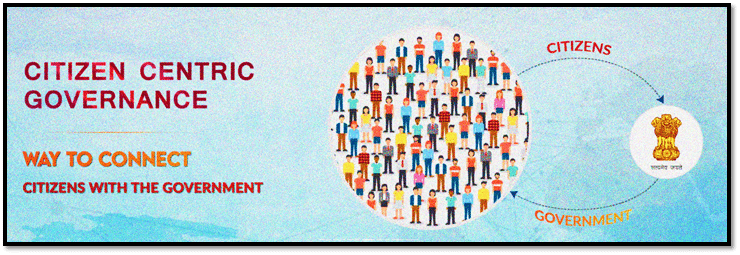CPGRAMS: Enhancing Citizen Engagement in India

The Indian government is committed to fostering a citizen-centric approach to governance. This initiative aims to ensure that citizens actively participate in the development process of the nation. A key component of this effort is the Centralized Public Grievance Redress and Monitoring System (CPGRAMS). This platform serves as a vital link between the government and the public, addressing grievances swiftly and effectively. From 2022 to 2024, CPGRAMS successfully resolved over 7 million grievances, significantly enhancing the responsiveness and efficiency of government services in India.
Understanding CPGRAMS: A 24/7 Online Platform
CPGRAMS, developed by the Department of Administrative Reforms and Public Grievances (DARPG), is an online platform available around the clock. It connects all ministries and departments of India, as well as state governments, allowing citizens to file complaints easily. Users can submit grievances through the official website, a mobile application available on the Google Play Store, or the UMANG app. Each complaint is assigned a unique registration ID, enabling citizens to track its status. Additionally, the ‘My Grievance’ app provides an independent platform for filing and monitoring complaints.
If a citizen is not satisfied with the resolution provided, they have the option to appeal once the grievance is closed. The appeal process is straightforward; if feedback is marked as “Poor,” the option to appeal becomes available. Citizens can track their appeals using the grievance registration number. Moreover, the government has reduced the grievance redressal timeline from 30 days to just 21 days, ensuring quicker resolutions and increased accountability.
Guidelines for Effective Grievance Redressal
To enhance the grievance redressal process, the government has established clear guidelines that emphasize transparency, efficiency, and accountability. The 2024 Policy Guidelines reflect the government’s commitment to addressing grievances effectively. These guidelines are the result of a comprehensive 10-step reform process aimed at improving the overall experience for citizens.
Key features of these guidelines include the establishment of an integrated platform for filing grievances, the appointment of Nodal Officers in every ministry and department, and the creation of dedicated grievance cells staffed with knowledgeable personnel. These measures ensure that grievances are categorized correctly, monitored effectively, and resolved in a timely manner. Furthermore, the guidelines mandate that grievance redressal must be completed within 21 days, with interim replies provided if additional time is needed.
The guidelines also introduce an escalation process, allowing appellate officers and sub-nodal officers to oversee grievance escalations within ministries and departments. This whole-of-government approach ensures that grievances are addressed efficiently across all government bodies. Additionally, a feedback system allows citizens to provide input on the resolution process, further enhancing accountability.
Key Achievements and Future Developments of CPGRAMS
CPGRAMS has made significant strides in improving citizen engagement and service delivery. Currently, it connects 92 central ministries, departments, and organizations with 36 states and union territories. The platform boasts over 73,000 active subordinate users and has registered 96,295 organizations. From 2022 to 2024, CPGRAMS facilitated the resolution of over 7 million grievances and mapped more than 103,000 Grievance Redressal Officers (GROs) as of October 31, 2024.
In December 2024, the Fourth Sushasan Saptah and Prashasan Gaon ki Ore Campaign further catalyzed grievance redressal efforts. This campaign, held in over 700 districts, aimed to resolve public grievances and improve service delivery across India. The Department of Administrative Reforms and Public Grievances is also developing the NextGen CPGRAMS platform, set to launch on July 1, 2025. This upgraded system will introduce features such as grievance filing via WhatsApp, voice-to-text lodging, and machine learning-based auto-replies, enhancing the grievance resolution process even further.
Global Recognition and Citizen Impact
CPGRAMS has gained international recognition as a model of effective governance. At the Third Biennial Pan-Commonwealth Heads of Public Service Meeting in April 2024, the Commonwealth Secretariat highlighted CPGRAMS as a future-ready governance tool. The system has proven effective in addressing citizens’ grievances, providing swift resolutions, and improving public safety.
One notable success story involves a citizen named Amit Kumar, who faced delays in the reinstallation of his electricity meter. After filing a grievance through CPGRAMS, his issue was resolved within two days, demonstrating the platform’s efficiency in addressing citizen concerns. Such success stories underscore the positive impact of CPGRAMS on the lives of ordinary citizens.
CPGRAMS has become an essential tool for improving how the government addresses citizens’ issues. By simplifying the grievance process and ensuring quicker resolutions, it has strengthened the connection between the public and the government. With significant improvements in service delivery and global recognition for its effectiveness, CPGRAMS is helping India move toward a more responsive and citizen-focused government.
Observer Voice is the one stop site for National, International news, Editor’s Choice, Art/culture contents, Quotes and much more. We also cover historical contents. Historical contents includes World History, Indian History, and what happened today. The website also covers Entertainment across the India and World.
Follow Us on Twitter, Instagram, Facebook, & LinkedIn

